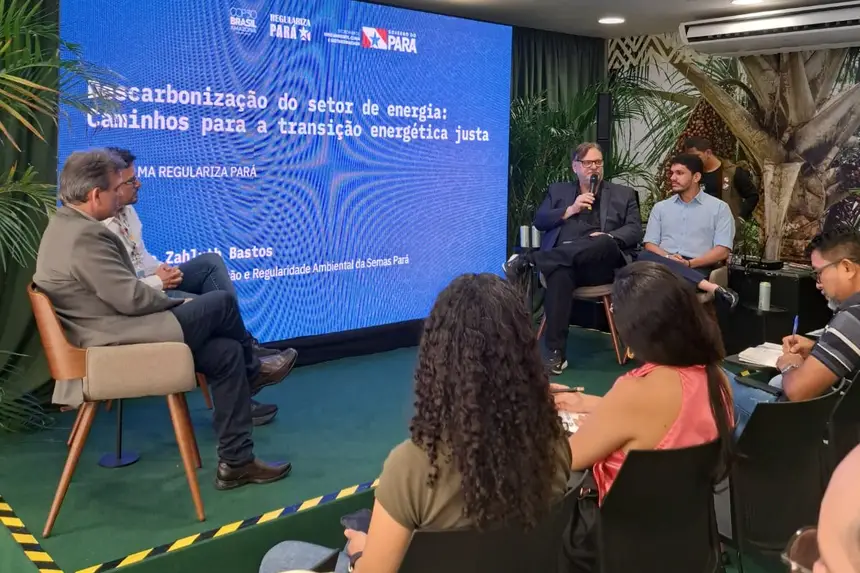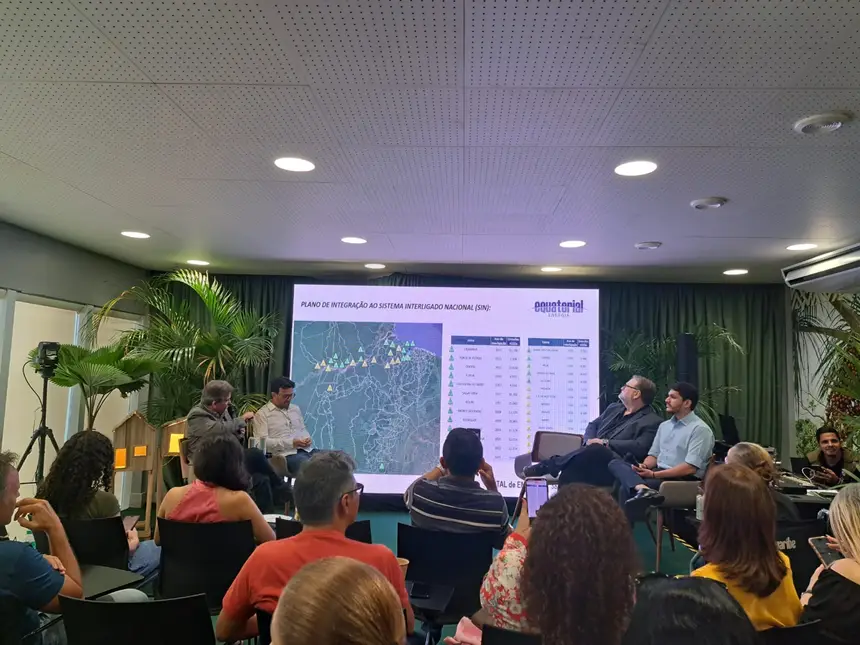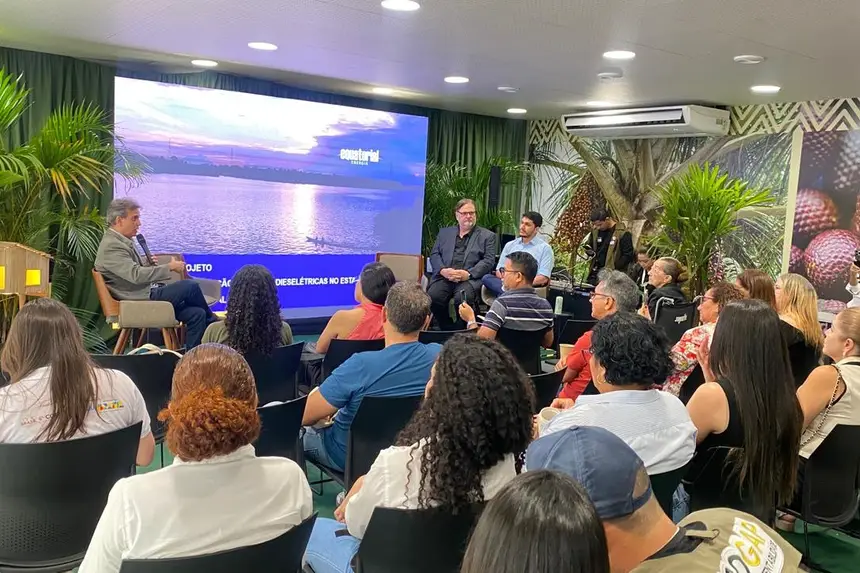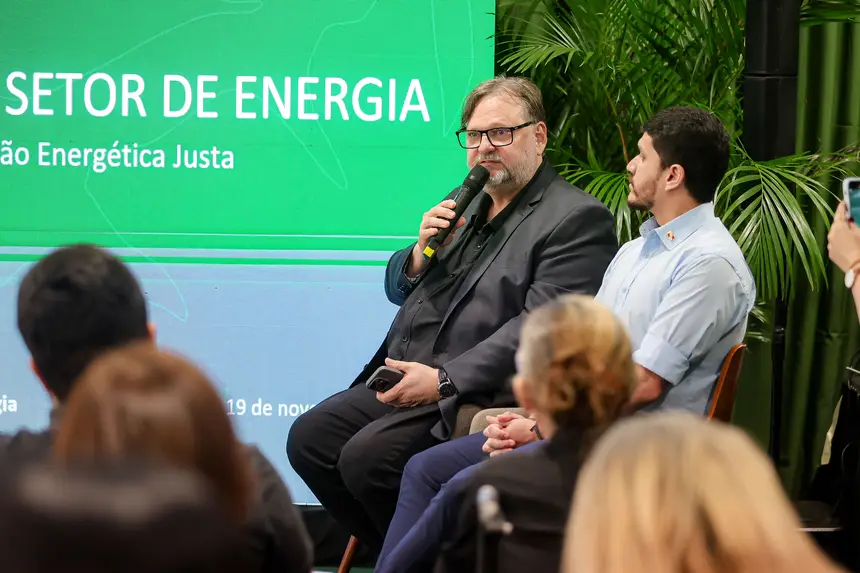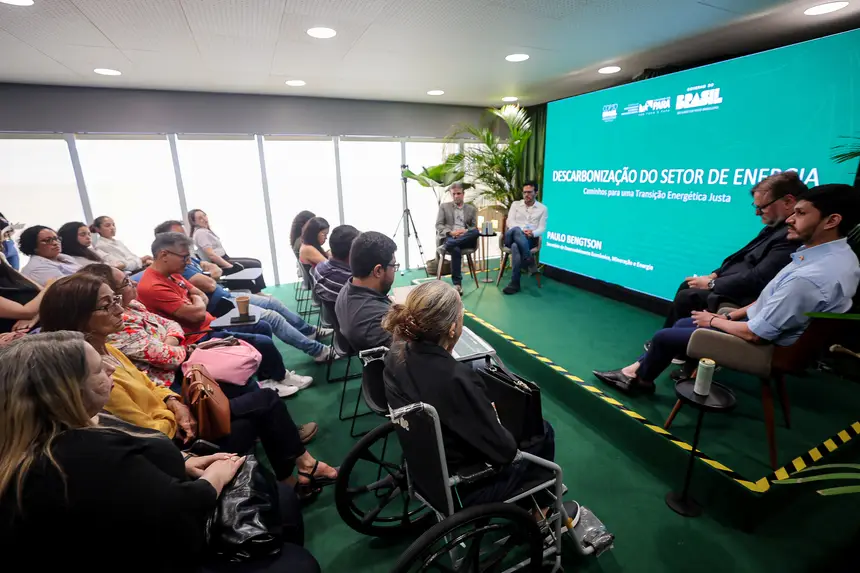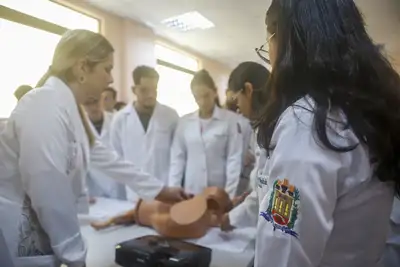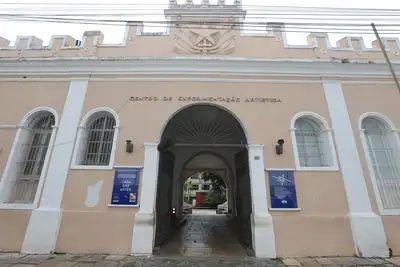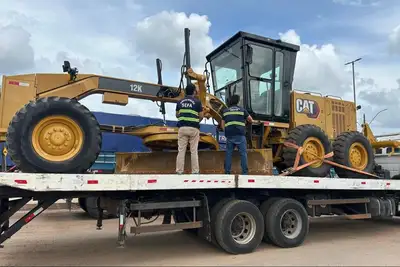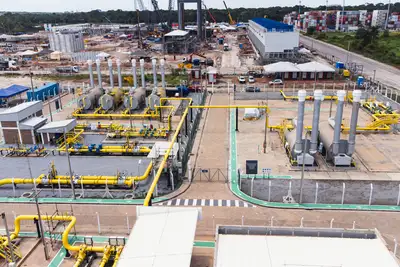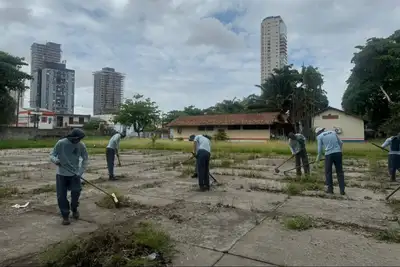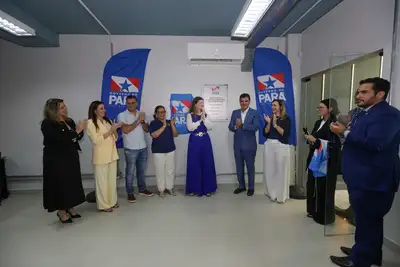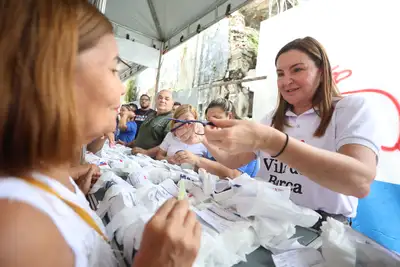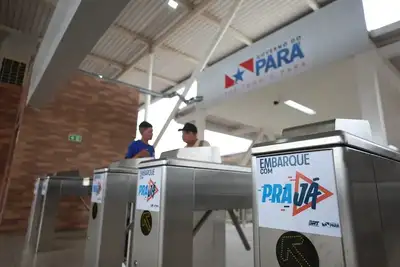Sedeme promotes debate on decarbonization and energy transition at COP30
The proposal is to invest in solutions that integrate technological innovation, local energy potential, and existing infrastructure, combined with regulatory instruments
The State Secretariat for Economic Development, Mining and Energy (Sedeme) held, on the afternoon of this Wednesday (19), at the Pará Pavilion, in the Green Zone of COP30, the panel "Decarbonization of the Energy Sector: Paths to a Just Energy Transition." The event was part of the Secretariat's agenda of debates and aimed to promote dialogue among representatives from the industrial sector, government, energy experts, academia, and civil society.
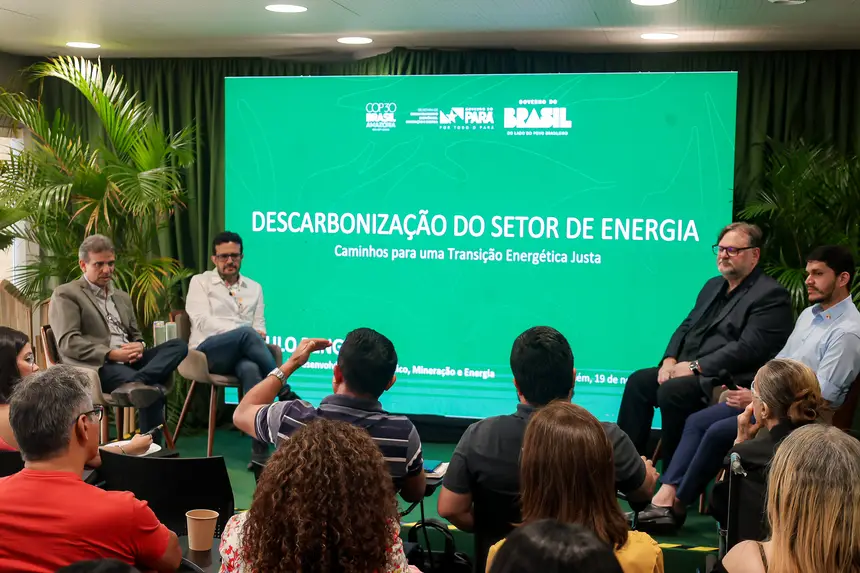
The proposal was to explore solutions that integrate technological innovation, local energy potential — hydropower, solar, and biomass — and existing infrastructure, combined with regulatory instruments that drive the transition to a cleaner, more resilient, and low-carbon matrix, promoting a sustainable development model.
Among the panelists were the Secretary of State for Economic Development, Mining and Energy, Paulo Bengtson; the Deputy Secretary of State for Environment, Climate and Sustainability, Rodolpho Zaluth Bastos; and the corporate environmental executive of Equatorial Energy of Pará, Ivan Aragão. The program was moderated by the coordinator of Energy Resource Management at Sedeme, Gabriel Cardoso.
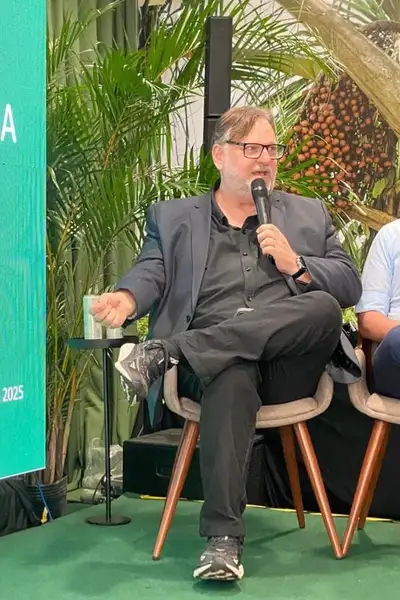
Transition - Paulo Bengtson stated that the decarbonization process has the potential to boost a sustainable industrial development model, capable of generating jobs and income, and strengthening environmental preservation and economic growth. "The energy transition model that Pará has shown to the world does not exclude productive sectors. On the contrary, it fosters sustainable economic development, creates opportunities, and values local communities," he stated.
To ensure a just and secure energy transition, Sedeme structures actions on four pillars: energy planning, formulation of public policies, granting of tax incentives, and encouragement of low-carbon sources.
Regarding tax incentives, Paulo Bengtson emphasized that the current administration already offers modalities for companies that use renewable energy, ensuring greater scoring and support from the State. Sedeme also directs incentives to enterprises aligned with the low-carbon energy matrix.
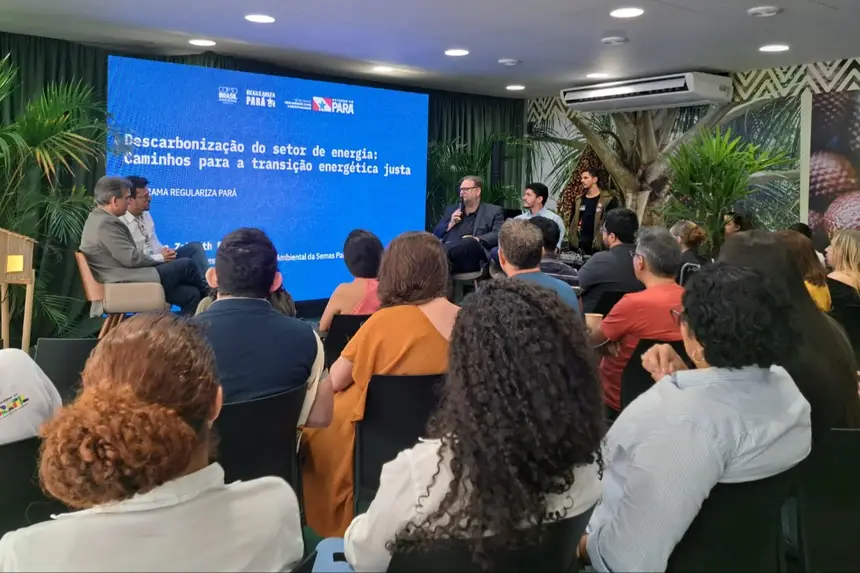
Clean Economy - Pará is advancing in the expansion of natural gas, the implementation of clean energy, and the development of biogas and biomethane projects. These initiatives increase the utilization of waste and drive the transition to a cleaner economy, reaffirming the commitment of the Government of Pará to reduce emissions, promote sustainability, and ensure quality of life for future generations.
The head of Sedeme also emphasized that the Socioeconomic Inclusion Program (PIS), an initiative of the Government of Pará, managed by Sedeme and executed with the support of Equatorial Energy, "aims to bring electricity to rural and remote areas that are still not served by conventional service, contributing to socioeconomic development and improving the quality of life of the population of Pará."
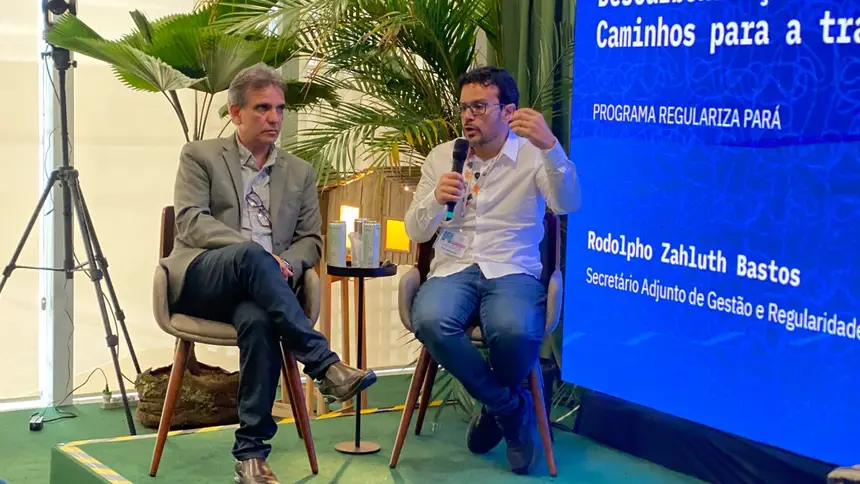
Data - Between 2019 and 2025, the PIS has already benefited more than 12,000 families in 75 municipalities, with investments exceeding R$ 155 million, expanding electrical networks in isolated regions and reducing the use of fossil fuels.
"We need to advance in the energy transition, ensuring the establishment of an industry that generates value and income, but that also provides firm, accessible, and safe energy for the populations. Many communities have been waiting for years for continuous energy. A renewable energy project, for us, is above all an inclusion project, capable of driving productive development, strengthening community chains, and ensuring dignified living conditions," said Deputy Secretary Rodolpho Zahluth Bastos.
The executive from Equatorial Energy, Ivan Aragão, presented the guidelines of the Diesel Power Plants Interconnection Project in Pará, which aims to replace diesel generation by integrating with the National Interconnected System (SIN). This is a continuous effort to connect isolated locations, ensuring more stable, sustainable, and economically viable energy, as well as reducing greenhouse gas emissions.
"Equatorial Pará maintains a program for deactivating diesel thermoelectric plants in isolated communities, connecting them to the national grid, which is predominantly based on renewable sources. The expectation is that, by 2027, about 400 tons of pollutant emissions will be reduced. The initiative involves not only the company but also joint work with federative entities. By interconnecting, municipalities expand their potential for local development," highlighted Ivan Aragão.
He emphasized that states like Pará, Amazonas, and Roraima still have diesel thermal plants, and reinforced that as municipalities go through the licensing process and connect to the SIN, new opportunities for growth and socioeconomic strengthening arise.
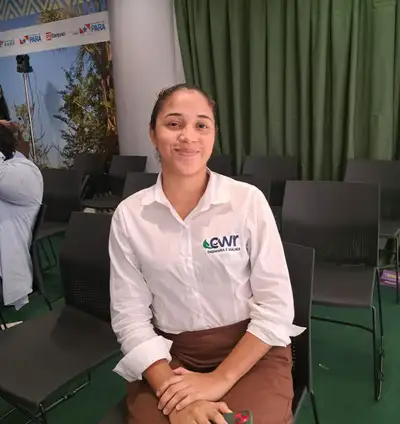
The environmental engineer Andreia Gonçalves attended the panel and emphasized that she has already participated in other similar meetings. In an interview, she explained that "the goal of being here is to hear the guidelines from the government, industry, and other institutions to understand what the positions and actions will be in the face of the decarbonization challenge. This theme is today the main path to reduce CO² emissions and, consequently, promote more sustainable development."



